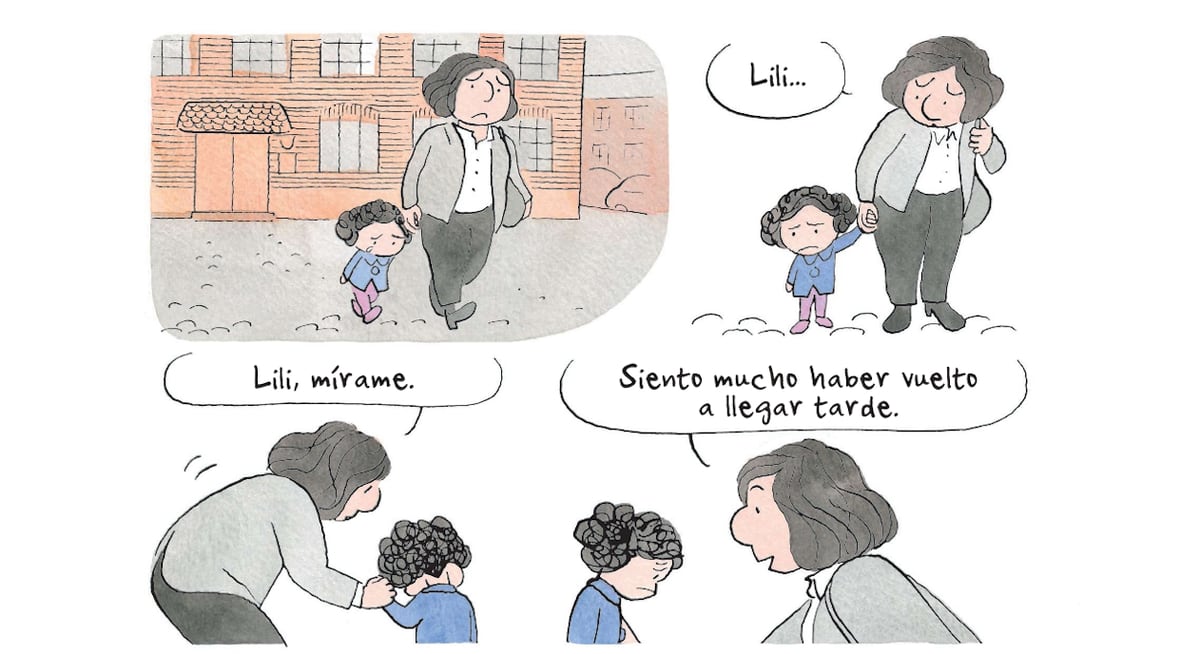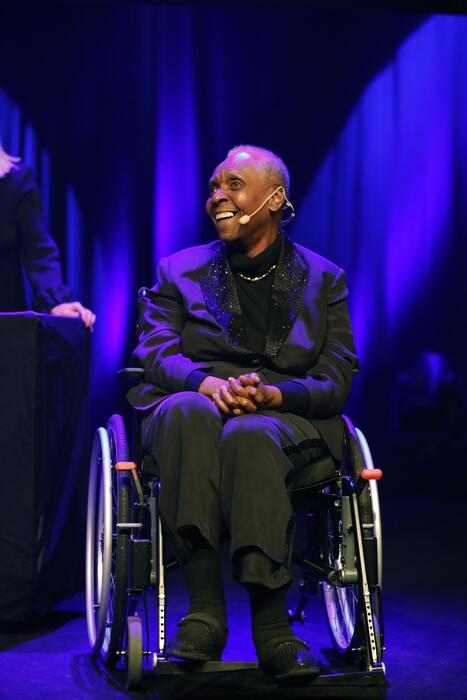Amalia is an exhausted mother who has developed a peculiar intolerance to performance.
She works, takes care, she feels that she must control everything and, furthermore, she must do everything well.
She feels guilt and ambivalence, but most of all, she's tired of crawling around with dark circles under her eyes and getting nowhere.
Aude Picault (Geneva, 43 years old) is the creator of
Amalia
(Garbuix Book), the story of this mother who, like a mirror, shows how motherhood is very often experienced today.
It is no coincidence that its author shows a world in ecological crisis as a framework for the graphic novel, since it links perfectly with the tired body of its protagonist.
She also does not escape issues such as the relationship of young people with social networks, communication difficulties in the family or the lack of emotional co-responsibility of the parents, as she explains in conversation with EL PAÍS.
More information
Paola Roig, perinatal psychologist: "One of the bases of parenting good enough is to meet the child's needs 60% of the time"
ASK.
How many staff are there at
Amalia
?
ANSWER.
I guess there is an important part because most of my stories come from a combination of my own personal experience and sociological questions.
This mixture interests me: very specific situations that highlight a general problem.
P.
An exhausted mother who does not reach everything.
Could it be said that we are all Amalia?
R.
Maybe, yes (laughs).
Although the good news is that Amalia shows us a stage of her: she goes through a stage of life, becomes aware of it and is in a process of evolution towards change.
Q.
It is not easy to be a mother in a hyper-demanding world, how do you survive that demand?
A.
It is difficult.
I personally have to ask myself every morning how I want to live and how I want my relationship with my son to be.
Do I place myself in rigid authority with my son because I am afraid of the judgment of society?
Or do I stand in a happy relationship based on mutual trust?
Aude Picault, author of the graphic novel 'Amalia'.Garbuix book
Q.
Could social networks be another way of idealizing motherhood and a new way of putting pressure on mothers?
A.
In a way I think so, obviously, but I am also convinced that it depends on how we use them.
Social networks can also be a great diversity platform to be able to get to know other contexts, learn and empathize.
What happens is that, as in real life, the first results that the algorithms give are recycled stereotypes, so we have to search for authenticity ourselves.
Q.
Are you breaking with the stereotypes that cinema and advertising have built regarding motherhood?
R.
There is still an abyss between the feminist struggle and the sexism that surrounds us in all areas, also in what advertising or cinema tells us about motherhood.
The mandate of beauty, sweetness and slavery is still terrible for mothers.
Q.
What do you think is needed to live a more joyful and less exhausting motherhood?
A.
The first step can be to free ourselves from the internal pressure that we put on ourselves.
Q.
What role do parents have?
A.
Exactly the same as that of mothers: being in harmony with oneself to be a good father and also an involved citizen.
View this post on Instagram
A post shared by Aude Picault (@audepiko)
Q.
Amalia has a young daughter and also lives with a teenager from her partner, Nora.
With the latter, she reflects on issues such as the relationship of adolescents with social networks or the importance of communication in the family.
Have family relationships been complicated by the advent of
smartphones
?
A.
I really think that all of our technological inventions only reveal old behavior or problems that we are unable to solve.
In many families, communication is difficult and you have to think about why, where these difficulties come from.
As children we were conditioned to listen and obey adults.
So it's a big step for an adult to accept that he can learn a lot from her son.
Q.
The ecological crisis is also very present in the book.
And I would say that this cross between ecological wear and the wear of Amalia's body is not by chance.
R.
I am sensitive to ecofeminist theory.
It is an interesting way of seeing the different applications of the same universal violence.
The ecofeminist activist Vandana Shiva is one of my references, which is why she has also thought about the power of the food industry in a world in climate crisis.
You can follow Mamas & Papas on
,
or sign up here to receive
our biweekly newsletter
.
Subscribe to continue reading
Read without limits
Keep reading
I'm already a subscriber





/cloudfront-eu-central-1.images.arcpublishing.com/prisa/T64LVSQLMRBDPKNF5NQ2IQUK4E.jpg)









